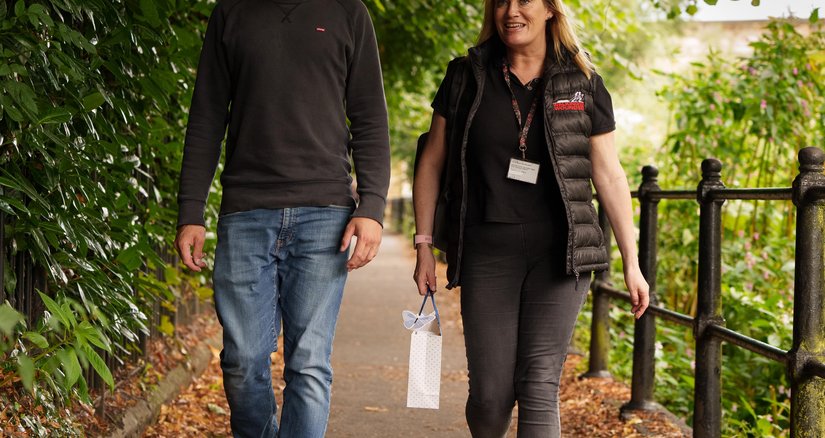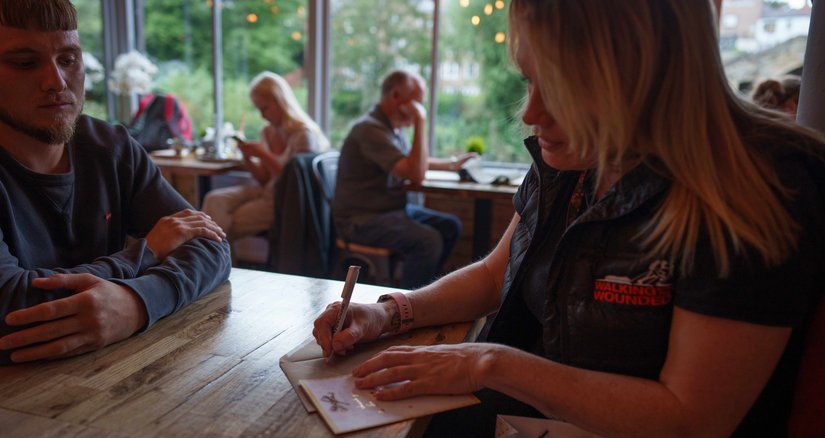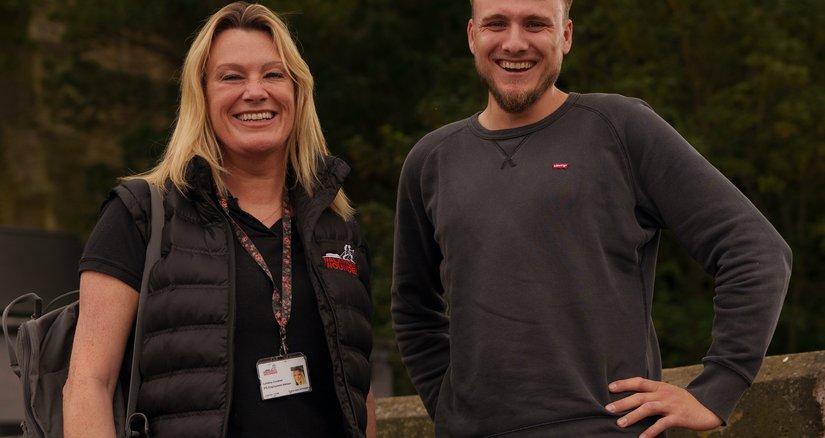Lynsey is one of Walking With The Wounded's Senior IPS Employment Advisors
WWTW recognises that for some veterans, the route to care looks complex and often inaccessible. Our Employment Advisors are embedded in NHS regional veteran mental health teams and in local communities. Because they have years of experience working with people who have served in the military, they understand the unique challenges faced when transitioning to civilian life.
We use the Individual Placement and Support model (IPS), meaning our Employment team offers intensive, individualised support that understands the mental health and wellbeing of each veteran we work with.
HOW WOULD YOU DESCRIBE YOUR ROLE AT WWTW?
My role is ultimately to support veterans into paid employment, but it’s rarely just that simple. Most of my clients have other issues going on in the background so it’s important those are addressed too to give them the best shot at being able to hold down a job. I work together with my WWTW colleagues and outside partners to ensure my clients get the best level of service wherever needed.
WHAT DOES AN AVERAGE DAY LOOK LIKE FOR YOU?
There’s no such thing as an average day in this role. No two days are ever the same but I aim to speak with or meet my clients face to face every two weeks as a minimum so I spend most of my time out in the community seeing clients, helping them with their CV’s, supporting with job applications and training or third party support for issues other than employability. I also meet with veteran friendly employers to try to pitch my clients for any suitable roles they may have.
WHAT'S THE BEST BIT OF YOUR JOB?
Nothing beats the buzz you get from knowing you made a difference to that person’s life. Whether it be when they move into work or just a thank you for helping them with their CV. I love that I have played a part in supporting clients on their journey, no matter how big or small.
WHAT'S THE BIGGEST CHALLENGE?
Filling the skills gap with veterans who want to re-train in another field of work is always a challenge – especially to source funding to enable the move. However, I do my best to manage their expectations and always try to support with pursuing funding wherever possible.
WHAT'S THE FIRST THING YOU DO WITH A CLIENT?
Talk to them. I make contact by phone as quickly as possible and have a brief chat about the support they are looking for and to make sure I am the right person to help. I then book in a face to face appointment to find out more about the client and always try to build rapport from the outset.
WHAT DOES A TYPICAL SUPPORT SESSION LOOK LIKE?
We start with an informal chat to see how their week has been since our last appointment and then we address any action points from the last meeting. I talk to my client about vacancies I have seen, employers I have met with and try to help them move forward with any other support they require at that time.
WHAT'S YOUR PROUDEST MOMENT IN THIS ROLE?
I supported a client who had been out of work since losing his two children in tragic circumstances. Within a week of meeting him, I arranged a work trial at a local waste recycling plant run by a veteran and my client was offered a job after the week’s trial. He is still there now and says we helped him get his life back.
Programmes of Support
Learn more about the programmes we provide that support veterans in the areas of employment, support care coordination and mental health.
Creating meaningful jobs and employment
Our highly trained and experienced employment advisors enable veterans to build confidence, find employment and rebuild their lives.
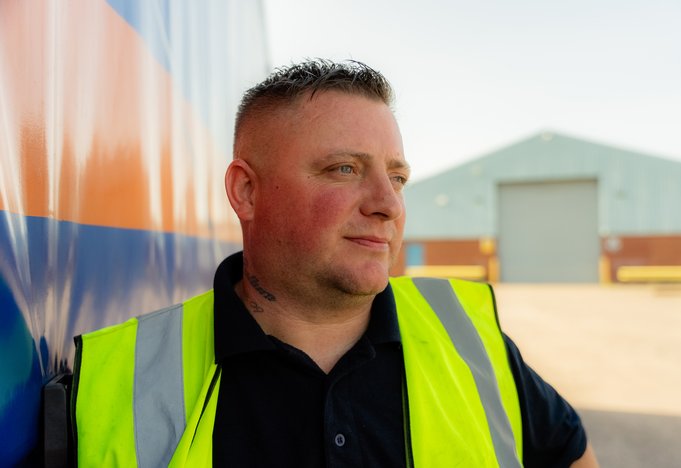
Giving veterans better tools to manage their needs
Our Support Care Coordination is bespoke for each person, and designed to develop self-worth, and empower clients to act independently.
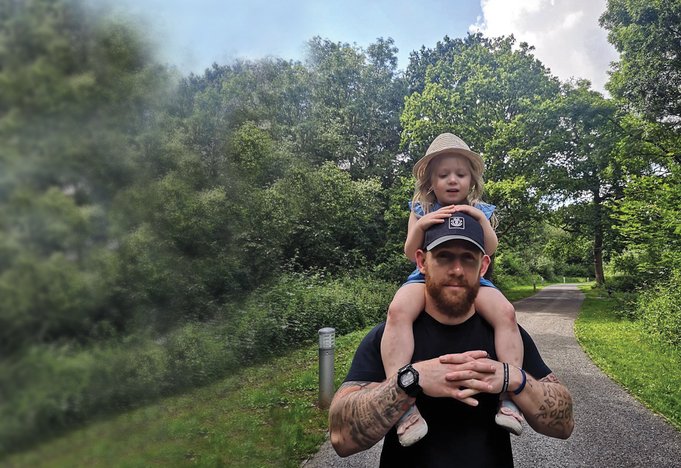
Mental health support for veterans that improves lives
Our Head Start programme improves wellbeing and empowers veterans with mild to moderately severe mental health difficulties.
